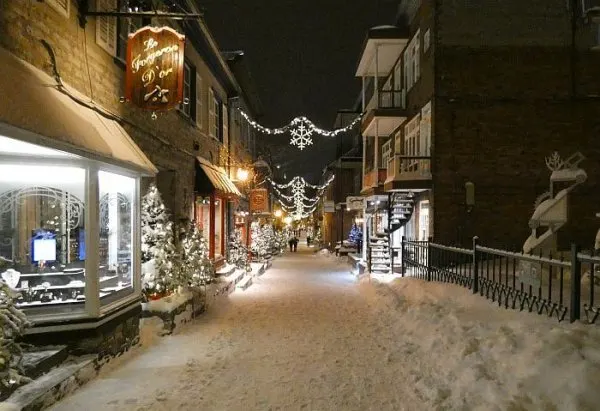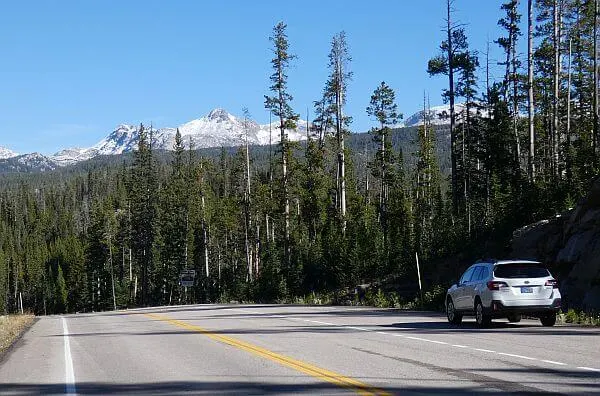[ad_1]

In a normal year, this time on the calendar brings lots of articles about holiday travel: we read about packed airports, expensive flights, weather delays, and other tales of woe. This is not a normal year, however, so holiday travel safety tips take on a whole new dimension.
The best way to travel this holiday season is probably virtually. Read some good books that will take you on a trip, stream some movies from afar. Pull out the old travel photos and look wistfully at those fun memories. If you’re getting a guilt trip from someone about coming to visit this year, you might want to show them how to use Zoom, Facetime, or Skype video.
If you’re going beyond your front door, however, it’s going to be a real adventure this year, and not in a good way. You don’t want to just throw some clothes in a bag and wing it.
Is Safe Holiday Travel an Oxymoron This Year?
For most people, it’s going to make more sense to stay home this year than it is to go visit relatives. Some survey results have indicated that’s what’s going to happen. Only about 75% of people responding to this survey said they were going to travel at all this holiday season.
Most who do have some kind of holiday travel plans are off to see family members, while a small fraction are planning to jet off somewhere on a distant vacation.
With the CDC advising Americans to stay put and Covid cases going up in Canada and Europe too, this is going to be a very different Christmas and New Year’s period. Instead of ringing in 2021 with big party crowds, we’ll be saying good riddance to 2020 while drowning our sorrows alone.

NOT sorry to see you go 2020
For those who need or want to travel though, there’s both the big picture and the nagging details to consider to do it without risking your health and your sanity.
Are There Safe Places to Travel Right Now?
Some travel writers have stopped writing about travel altogether for now, saying they can’t give advice on this when the virus is clearly not contained. I agree to a point, and I’m certainly not going to tell someone to jet off to Thailand right now. Done correctly, however, with lots of precautions, there are safe places to travel and safe ways to get a change of scenery.
I’m personally not doing much traveling right now and don’t have any plans to go far away for the holidays. I’ve done a few trips to places where I could get to in a car, however, I’ve also flown between the USA and Mexico to take care of some family needs and I’ve stayed in hotels several times. I even did a voluntary two-week quarantine when I went to the states before we moved on to a relative’s house. When we got back to Mexico we got tested a few days later to get the all-clear.
Living in Mexico though, I see what’s being done here and in many cases it’s safer to walk around my Mexican city than it is in most of the USA. It’s certainly safer than free-for-all Florida or Texas.
Is Cancun safe to travel to? What about San Miguel de Allende, or Los Cabos?
Within reason, yes. These destinations have been going out of their way to limit capacity, mandate face masks, and squirt you with hand sanitizer every time you walk through any doorway. They’re taking your temperature everywhere you go. In most of the country you can drink and dine outside all year, so you can avoid doing either indoors. There are mostly empty beaches like the one below all over Mexico.

There are some spots in Mexico that have turned into “super spreader” locations though because there are too many idiots running around without masks. Avoid insta-stupid Tulum if you’re trying to stay safe. And if you choose the cheapest all-inclusive hotel in Cancun, there’s a good chance you’ll be sharing it with careless anti-science Americans.
Mexico has never required proof of testing to enter. If you’re going to travel further south in Latin America, you’ll actually need to arrive with very recent swab test results showing you’re not infected with the virus. Many countries are open from Costa Rica to Chile, but you’ll need to quarantine for two weeks if you can’t prove you’re virus-free. See the country openings and restrictions here.
Safe Holiday Travel Transportation
The problem with international travel is, you’ve still got to get there, which means getting on a plane and sharing a metal tube with lots of other people. The airline execs keep telling us their air is filtered constantly and gosh, they’re really trying to enforce those mask rules. But you’re always going to have selfish pricks who try to get around the rules, plus all the North American airlines except Delta are now packing their planes to capacity every chance they get–just as virus numbers are setting new records in the USA. So if you choose to fly, go with the airline looking out for your health, not American Airlines.
Although it pains me to say it since I run websites about international travel, the safest bet is to go somewhere you can reach by car. This still comes with its own hazards since you still need to take bathroom breaks and get food along the way. This means contact with other humans now and then, but you’re in your own bubble the rest of the time.
Fortunately, in the USA and Canada, you’ve got lots of wide-open spaces you can enjoy. You can go skiing in Idaho with a mask that also warms your face. You can rent a villa in the mountains. You can rent an RV and head to a state park or go camping if you’re in the south and it’s warm enough. Until we’ve got widespread vaccinations happening, the way we travel is going to be isolated to be safe.

If you do it right, travel can be as safe as staying home and shopping for groceries, but only if you can avoid the crowds, especially if some in those crowds are only looking out for themselves.
Ongoing Safe Travel Tips for the Holidays
This is an unusual year, so holiday traveling safety tips involve taking the usual precautions and then tripling them. Once you factor in all the virus-related factors for safe holiday travel, then you’ve got the issues you have to deal with every year.
As someone who is normally on the road every month or two, I’ve learned to anticipate the problems and do what I can to avoid them. I try to be an antifragile traveler who can reduce the chances of things going wrong, then have the methods to deal with adversity when it happens.
First of all, I have an annual travel insurance policy from Allianz. As long as I renew it each year, I’m covered for every trip where I’m more than 100 miles from home. That part is key this year when people are taking so many road trips and exploring places close to home. They also have a really useful travel safety app that I covered in this article.
Read that for other phone-related tips to prepare for problems and when in doubt, put it on your phone. Either upload things directly or put them in a cloud account like Google Drive or Dropbox. Driver’s license, passport, proof of insurance, airline info, key contacts—you want to be prepared if anything goes wrong. And don’t forget to always have a loaded-up portable charger with you too!
If you’re driving somewhere, do you have some kind of roadside assistance if you have car trouble? Your travel insurance or car insurance may cover it, or your credit card might, but make sure instead of guessing. If not, get it.

Is your spare tire pumped up? Can your tires handle snow? Do you have an emergency kit in the trunk/boot? What about jumper cables? Safe holiday travel means winter travel, so it’s not the same as a summer jaunt.
If, God forbid, you have to fly around Christmas, pack plenty of hand sanitizer, extra masks, and maybe more to form your own personal bubble. Do your best to avoid crowds in the airport—especially in food courts and restaurants where people have their masks off to eat.
But then follow all the normal holiday air travel advice to lessen your chances of being stranded. The first flight of the day has the best chance of taking off—or getting you rescheduled if it doesn’t. Fly direct if you can. And again, if you’ve got good travel insurance you’ll have a leg up: you’ll receive compensation if your flight is delayed by a lot or your luggage gets lost.
Having extra hotel points in your pocket can help you get a room for the night without having to come up with $100 or more you weren’t planning to spend. Having a travel banking back-up plan will mean you’re not depending on one card or account.
One trick that can help is to mentally run through your travel itinerary and ask, “What if____” about each step. What can go wrong before you get to the airport? While there? Upon landing? On the road to your destination?
Once you’ve imagined the potential disasters and devised a solution to them, you’ll be ready for anything.
This post was sponsored by Al Centro Media advertising partner Allianz Global Assistance (AGA Service Company) from whom I have received financial compensation. I also use them as my travel insurance provider. As always, all thoughts and opinions are my own.
[ad_2]






